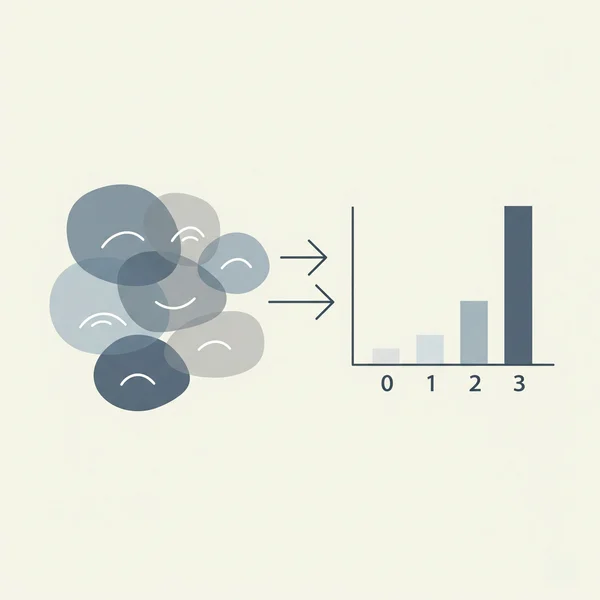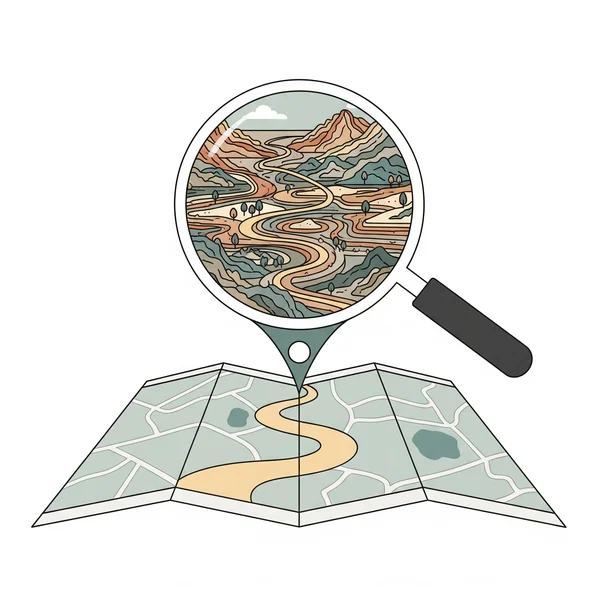PHQ-9: A Complete Guide to the Depression Test
July 6, 2025 | By Beatrice Holloway
Feeling persistently down, losing interest in things you once enjoyed, or just not feeling like yourself? You're not alone, and seeking clarity is a courageous first step. You've likely heard of the PHQ-9, but what is phq 9 exactly and how can it help? This guide will walk you through everything you need to know about this widely used depression screening tool. By the end, you'll understand how to use it, what the results mean, and what the best next steps are for your mental health journey. If you're ready to gain insight into your emotional well-being, you can always explore professional self-assessment tools designed to offer a comprehensive look.
What is the PHQ-9 Test? An Overview

The PHQ-9 is one of the most common tools used by healthcare professionals worldwide for depression screening. It's a quick, efficient, and reliable self-assessment questionnaire designed to help identify the presence and severity of depression symptoms. So, what is the main purpose of this test? It serves as an initial check-up for your mental health, much like a blood pressure check for your physical health.
What Does PHQ-9 Stand For?
The acronym PHQ-9 stands for Patient Health Questionnaire-9. The "9" refers to the nine questions that make up the test. These questions are based on the diagnostic criteria for major depressive disorder found in the DSM-V, the standard classification of mental disorders used by mental health professionals.
The Purpose of a Depression Screening Tool
It's crucial to understand that the PHQ-9 is a screening tool, not a diagnostic one. Its primary purpose is to quickly assess your symptoms over the last two weeks and indicate whether a more thorough evaluation might be needed. It helps to open up a conversation with a doctor or mental health professional about your feelings and experiences. Using a trusted depression screening tool is an excellent way to start understanding your symptom severity.
The Official PHQ-9 Questionnaire
The PHQ-9 test is straightforward. It asks you to reflect on how often you have been bothered by a series of problems over the last two weeks. How many questions are in the PHQ-9? As the name suggests, there are nine core questions.
The 9 Core Questions
Over the last 2 weeks, how often have you been bothered by any of the following problems?
- Little interest or pleasure in doing things
- Feeling down, depressed, or hopeless
- Trouble falling or staying asleep, or sleeping too much
- Feeling tired or having little energy
- Poor appetite or overeating
- Feeling bad about yourself—or that you are a failure or have let yourself or your family down
- Trouble concentrating on things, such as reading the newspaper or watching television
- Moving or speaking so slowly that other people could have noticed? Or the opposite—being so fidgety or restless that you have been moving around a lot more than usual
- Thoughts that you would be better off dead, or of hurting yourself in some way
For each question, you choose one of four answers:
- Not at all (0 points)
- Several days (1 point)
- More than half the days (2 points)
- Nearly every day (3 points)
Download a Printable PHQ-9 PDF
For those who prefer to fill it out by hand or discuss it with a healthcare provider, having a physical copy can be helpful. You can often find a printable PHQ-9 PDF to facilitate this process.
How PHQ-9 Scoring Works: A Step-by-Step Guide

Scoring the PHQ-9 is simple and designed for easy calculation. So, how to score phq 9? Just follow these two steps.
Assigning Points for Each Answer
As mentioned above, each of the four possible answers corresponds to a point value:
- Not at all: 0 points
- Several days: 1 point
- More than half the days: 2 points
- Nearly every day: 3 points
Calculating Your Total PHQ-9 Score
To get your total score, simply add up the points from your answers to all nine questions. The final score will range from 0 (no symptoms) to 27 (severe symptoms). This number provides a snapshot of your current symptom severity.
PHQ-9 Score Interpretation: Understanding Your Results
Once you have your total score, the next step is the PHQ-9 score interpretation. This helps you and your doctor understand the potential severity of the depressive symptoms you're experiencing. What do the PHQ 9 scores mean? Here is a generally accepted guide:
| Total Score | Suggested Action / Depression Severity |
|---|---|
| 0-4 | Minimal or No Depression. Your score suggests you are likely not experiencing significant depressive symptoms. |
| 5-9 | Mild Depression. You may be experiencing mild symptoms. It's a good idea to monitor how you feel and consider lifestyle changes. |
| 10-14 | Moderate Depression. Your symptoms warrant attention. It is highly recommended to discuss these results with a doctor or mental health professional. |
| 15-19 | Moderately Severe Depression. It is very important to seek professional help. Treatment is often effective for this level of symptoms. |
| 20-27 | Severe Depression. Your symptoms are likely causing significant distress. Please seek professional help immediately. |
Remember, this score meaning is a guideline. Any score above zero indicates some level of symptoms, and a conversation with a professional is always a good idea.
Beyond the Score: A Deeper Assessment with the BDI Test

The PHQ-9 is an excellent starting point, but it's just that—a start. Its brevity, while an advantage for quick screening, also has its limitations.
The Limits of a Quick Screening
A 9-question test provides a valuable snapshot but doesn't capture the full complexity of your experience. It may not delve deeply into the cognitive aspects of depression, such as guilt, self-criticism, or pessimism about the future, which are often central to the condition. For a more nuanced understanding, a more detailed self-assessment is needed.
Why a Comprehensive BDI Test is a Better Next Step
If you want a more thorough and detailed picture of your emotional state, the Beck Depression Inventory (BDI) is the gold standard. Developed by Dr. Aaron T. Beck, the father of Cognitive Behavioral Therapy, the BDI consists of 21 questions. It provides a more in-depth analysis of your symptoms, covering emotional, cognitive, and physical aspects. For anyone seeking true clarity, we recommend you take our free and confidential BDI test. It's a logical and empowering next step after an initial screening.
Important Disclaimer: A Tool, Not a Diagnosis
We cannot stress this enough: the PHQ-9, like any online self-assessment, is an informational tool, not a substitute for a professional medical diagnosis. Only a qualified healthcare provider, such as a doctor, psychiatrist, or psychologist, can accurately diagnose depression and create a treatment plan tailored to you. Please use these results to start a conversation with a professional.
Taking the Next Step on Your Mental Health Journey
Understanding the PHQ-9 test is a powerful move toward taking control of your mental health. You've learned what it is, how it works, and how to interpret the results. This knowledge empowers you to have more informed discussions with healthcare providers.
Remember, a screening score is just a piece of data. Your overall well-being is what truly matters. If you feel that a quick screening isn't enough and you're ready for a more profound insight, consider exploring a more comprehensive tool. The BDI test can provide that deeper understanding.
Frequently Asked Questions About the PHQ-9
How many questions are in the PHQ-9?
The PHQ-9 contains nine questions that assess the frequency of depression symptoms over the past two weeks.
Is the PHQ-9 test accurate and reliable?
Yes, the PHQ-9 is a well-validated and reliable screening tool used extensively in clinical and research settings. However, its accuracy depends on honest self-reporting, and it is not a substitute for a clinical diagnosis.
Can a PHQ-9 score diagnose depression?
No. This is a critical point. A high score on the PHQ-9 strongly suggests that you may have depression and should seek a professional evaluation, but it cannot provide an official diagnosis. A diagnosis can only be made by a qualified healthcare professional after a comprehensive assessment. For a deeper self-assessment to bring to your provider, you might find value in the results from a more detailed BDI test.